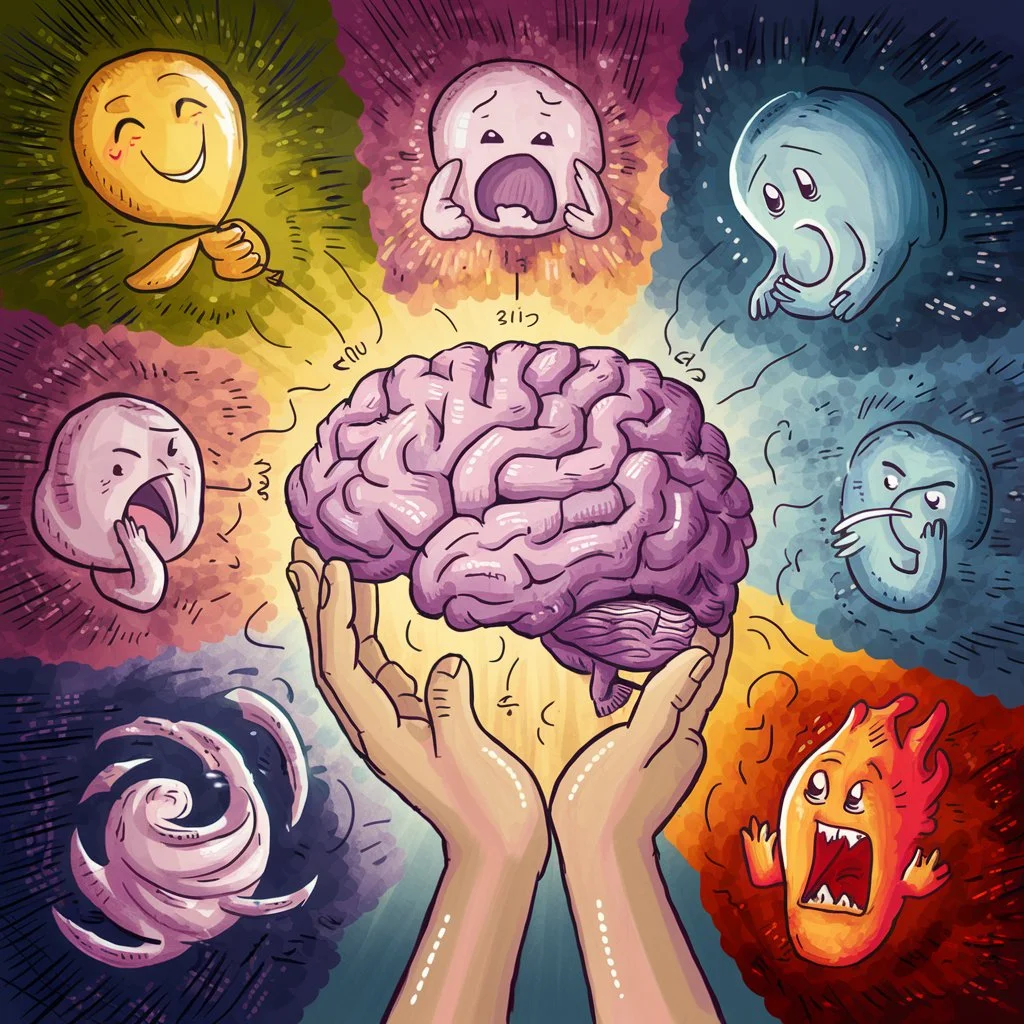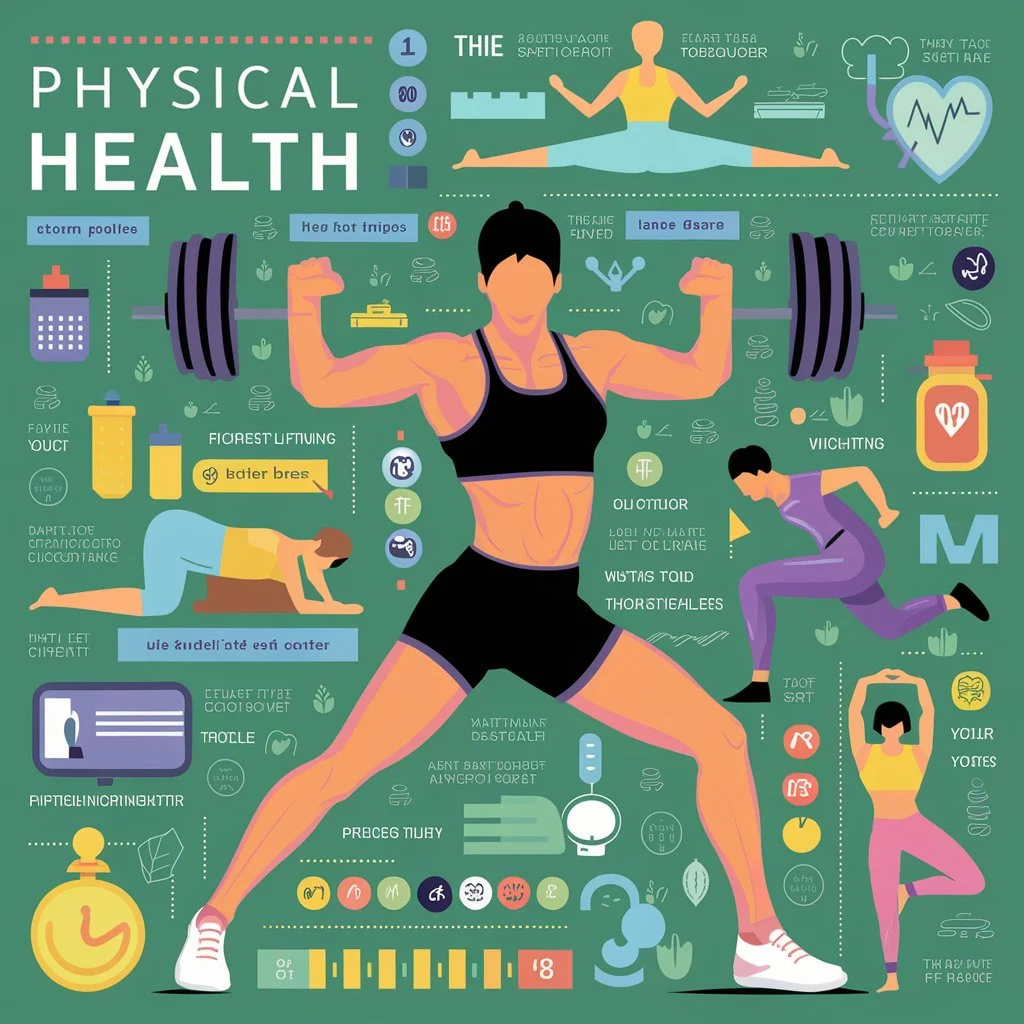
Feeling down? Developing the ability to practice gratitude daily is a gateway to an array of benefits to your physical and mental health. Be stunned by the science behind the positive effects of gratitude and with the tips for a better lifestyle via gratitude incorporation.
Acknowledging or thanking people for the lovely things present is critical to transforming your mental and physical health. In this blog, we will describe how daily gratitude can boost your mind and body:
Research suggests that practicing daily gratitude can significantly improve your:
Mental Health:

Reduced Stress and Anxiety:
More often than not, participating in the positive (focusing on the positive) can help you gain a new perspective and make you less likely to be overwhelmed with negative emotions such as worry.
Enhanced Mood and Happiness:
Gratitude opens the doors of hope and contentment and then attracts optimism, which gives greater happiness and well-being.
Improved Sleep Quality:
Gratitude is a beautiful mind virtuoso that creates a composition with less tension and quietness, promising deeper and more restful associations.
Boosted Self-Esteem:
Seeing your strengths creates helpful feelings that will increase your self-esteem and self-confidence.
Personal experiences:
Lived experiences, which may comprise trauma, loss, and various pressures, could considerably influence mental health.
Thoughts and beliefs:
How you think can be one of the causes of your moods, values, and way of life in general.
Relationships:
Bonding with a solid social network can thus convey the message of support, and mental health will benefit from it.
Biological factors:
Most mental health disorders are caused by a combination of biological factors (neurochemistry and hormones) and interplay.
Physical Health:

● Strengthens the immune system:
Research proposed that gratitude might be a factor that has a positive impact on the immune system, and in that case, it might enable your mind and body to cope with illness.
● Lowers blood pressure:
It has been found that expressing gratitude affects lowered blood pressure levels and is a factor in good cardiovascular health.
● Promotes better sleep:
While discussed earlier, the linked effects of better sleep with gratitude on physical wellness add to the proven benefits of gratitude.
● Increases resilience:
Cultivating a grateful attitude can lead you to better cope with challenges and defeat discouragement more easily.
● Diet and nutrition:
A proper diet means you have all the nutrients you need, which are essential for your body to function normally.
● Exercise and physical activity:
Regular body movements will strengthen your muscles and bones, improve your heart disease, and get well physically.
● Sleep:
The right amount of sleep affects the body and mind and helps the body recover and reload.
● Genetics:
Certain genetic influences can predispose you to some illnesses, but this is not a sufficient genetic determinant for your general health.
● Lifestyle choices:
Conducting activities like smoking, heavy drinking, and drug intake influence health negatively to a considerable extent.
The Science Behind Gratitude’s Impact on Mind and Body
The fact that the positive results of doing daily gratitude have been found, together with discovering the science behind it, could further justify the usefulness of this beneficial practice. Here’s a glimpse into the research that supports its connection to both mental and physical well-being:
Mental Health:
Neuroplasticity:
Gratitude practices, in turn, trigger the reward circuit in our brain, consequently driving the release of dopamine and serotonin neurotransmitters. Both neurotransmitters play significant roles in happiness and well-being. The mental boost from the positive feedback leads the brain to reinforce these neural pathways, promoting a more upbeat outlook day by day.
Cognitive Reframing:
You channel your attention on what makes you grateful, which enables you to change the negative upside down and thus visualize a better perspective. In such cases, you could write that it could be a game-changer in how you see and address problems.
Mindfulness and Self-Compassion:
When we are involved in thankfulness, which mainly consists of a mindset of gratitude for ourselves and what we have been given, it helps reduce the negative thoughts that may affect us. Consequently, we can put ourselves in a position that does not allow self-hate but improves our emotional health.
Physical Health:
Reduced Stress Response:
The body becomes weaker due to chronic diseases, and inflation can repeatedly occur. Gratitude exercises may support healthier stress levels and, therefore, influence better cortisol – the primary stress hormone – balance, which will improve immune function.
Improved Sleep Quality:
Also, keeping grateful thoughts at the end of the day will enhance sleep quality and is vital for both physical and mental health. A long-lasting sleep, in which the body’s regenerative power is maximized, leads to less fatigue and improved wellness.
Cardiovascular Health:
Studies show a connection between gratitude and lowering blood pressure, possibly reducing the risk of cardiac disease.
Remember:
While the research is still ongoing, grasping the benefits of gratefulness is also growing, and this will be able to be used shortly in the health sector.
Gratitude practices ought not to be a caller for medical treatment. When you are fighting with your mental or physical health, contact healthcare professionals to find out how to get help.
Reminding yourself to be grateful every day has the power to bring positivity and well-being to your life. Still, it can also contribute to a community that is all about hope and critical appreciation.
Going Beyond the Individual: The Dreadful Effect of Gratitude on Mind and Body
The broad transformational superpower of gratitude is not contained within the person isolated in the process. Train your mind to be thankful and plug, as it is also a wellness booster for you and others around you. Here’s how:
Strengthening Relationships:
One of the ways to appreciate other people is by showing them live loving. It helps to build stronger links and more profound interdependence. Attending another individual speech to say ‘thank you’ is such an excellent gesture to shade their efforts and involves people in significant relationships.
Gratitude helps with actions like empathy and compassion. When you applaud the virtues of others, it enables you to be more aware of their stories and struggles, which brings empathy and belonging.
Gratitude contributes not only to positive vibes around us but, more importantly, to the mind and body of our surroundings. While people express their gratitude, they create a vicious cycle that influences others to see the world from an appreciative and joyous standpoint, leading to an environment that is appreciative and supportive of everyone.
Building a More Compassionate World:
Gratitude is why people answer goodness received with the movement of kindness and generosity. Being conscious of the good things in your life can prompt you to do two things: live so generously with your time, resources, or even your talent, or give more to make the world a better place.
By fostering a grateful spirit, kinship in the community and love of one’s shared existence are cultivated. Appreciating the varied contexts of human life with others strengthens a feeling of shared humanity and mutual relations as a bond that demolishes borders and promotes unity.
Gratitude catalyzes social renovation. While admiring the good in the world and acknowledging the efforts of people who make efforts to change the world positively, you create a just and equitable society.
Remember:
Every act of gratitude, big or small, has the potential to create a positive ripple effect.
Incorporating gratitude practices into your life can contribute to building a more grateful and compassionate world for everyone.
By adopting a gratitude mindset and actively expressing your appreciation, you can enhance your well-being and contribute to creating a more positive and interconnected world. Let gratitude be the guiding light that illuminates your path and inspires others.
Conclusion
In conclusion, daily gratitude is more than just a feel-good practice; it’s a potent tool for unlocking a thriving and fulfilling life. By acknowledging the good in your life, no matter how small, you can:
Cultivate a positive mindset:
Gratitude fosters optimism and resilience, allowing you to navigate challenges with greater ease and find joy in the everyday.
Strengthen your relationships:
Expressing appreciation to others strengthens bonds, fosters connection, and creates a more supportive environment.
Improve your mind and body well-being:
Studies suggest gratitude may positively impact sleep, immune function, and cardiovascular health while reducing stress and anxiety.
Contribute to a more positive world:
By spreading kindness and appreciating the good around you, you inspire others and create a more compassionate and connected society.
Remember, the journey towards a more grateful you starts with a single spark. Embrace the power of gratitude, incorporate these practices into your life, and watch as it ignites a fire that illuminates your path and empowers you to live a life filled with joy, the well-being of mind and body, and a brighter outlook on the world.
